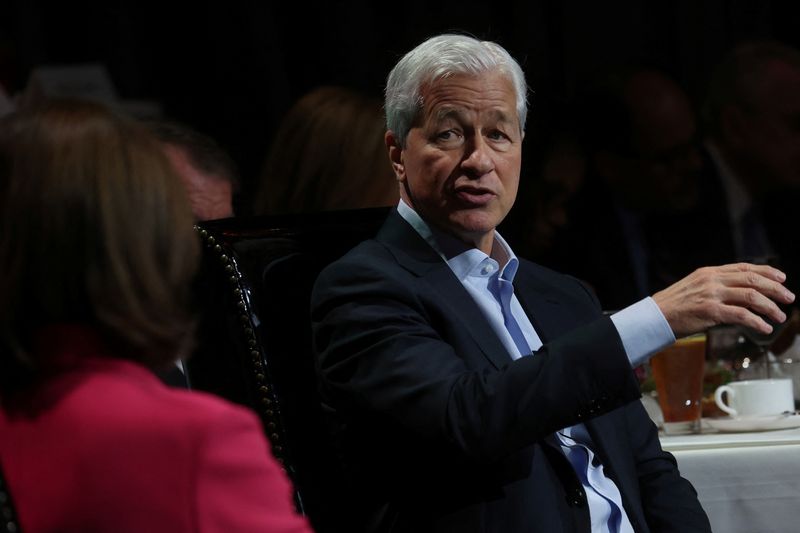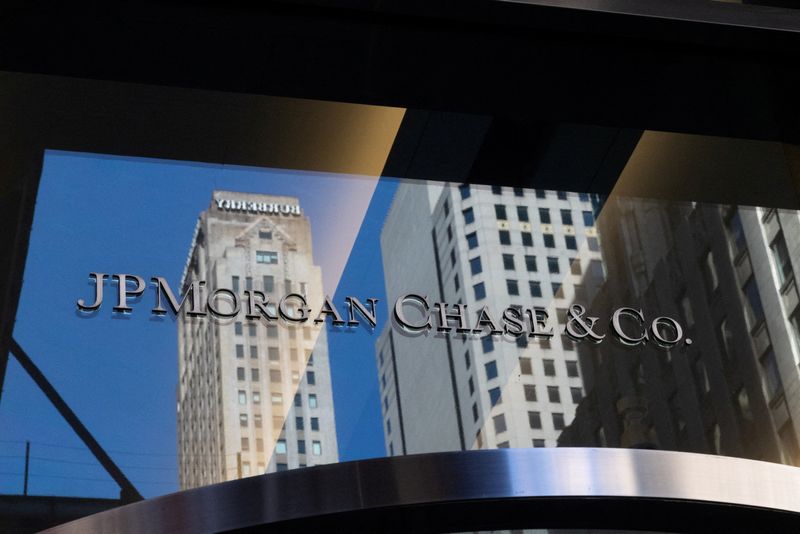(Reuters) - Executives from top U.S. banks remained divided over the U.S. Federal Reserve's future path on interest rate cuts and flagged deterioration in consumer health when they reported mixed second-quarter results.
Banks are having to pay more to retain customers who are hunting for greater yields while also dealing with the fallout of higher-for-longer interest rates, as borrowers balk at taking out new loans.
JPMORGAN CHASE:
"While market valuations and credit spreads seem to reflect a rather benign economic outlook, we continue to be vigilant about potential tail risks," CEO Jamie Dimon said in an earnings release, adding that the risks included a changing geopolitical situation, which remains the most dangerous since World War II.
Inflation and interest rates may stay higher than market expectations due to threats like large fiscal deficits and restructuring of trade, Dimon said.
"We still do not know the full effects of quantitative tightening on this scale," he added.
WELLS FARGO
"Looking ahead, overall, the U.S. economy remains strong, driven by labor market and solid growth. However, the economy is slowing and there are continued headwinds from still-elevated inflation and elevated interest rates as managers of large complex financial institution," CEO Charlie Scharf said on a call with analysts.
"Rate expectations continue to change ... We'll hopefully have to see how that plays out and how that translates into action," Wells Fargo's finance chief, Michael Santomassimo, told reporters on an earnings call.
CITIGROUP:
"Looking at the macro environment as we enter the second half of the year, the U.S. is still the world's most structurally sound economy. After breaking progress, inflation now appears back on a downward trajectory," CEO Jane Fraser said on a call with analysts.
"Services spending has remained on an upward trend, although there are clear signs of softening labor market and the tightening of the consumer budget," she added.
The bank also flagged stress on consumers with lower credit scores.
BNY

"The U.S. economy has been doing quite well and maybe a little surprisingly well versus some people's expectations," CEO Robin Vince said in a media call. Vince focused on how the United States has done considerably well compared to other countries in the face of inflation and a "complicated" global scenario.
"The challenge for the Fed, who I will call out as having done a particularly good job, is trying to find the best timing for rate changes in order to be able to cushion against potential softness in future," he added. (This story has been corrected to fix the attribution of comments from CFO Dermot McDonogh to BNY CEO Robin Vince in paragraph 11)
